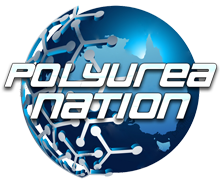
Polyurea – A Better Alternative
Polyurea is an amazing material that has been around for centuries but only recently has started to gain popularity as an insulator. Polyurea is essentially a form of synthetic elastomer which is derived principally through step-growth polymerizing of a synthetic resin ingredient and an isocyanic acid component at a high temperature. The isocyanic acid is also known as cationic surfactants and has similar properties to that of propylene glycol. Basically polyurea has good thermal conductivity, adsorption abilities, chemical resistance, mechanical stability and chemical tolerance.
Polyurea has been used in a wide range of applications but is particularly well known for use in roofing materials where high wear resistance, low density, good chemical resistance, and high moisture resistance are required. It has also recently found its way into drywall and other building material due to it’s excellent adhesive properties. Roof coatings and sealants made out of polyurea are popular with many different industries due to its unique characteristics. In fact, polyurea coatings and sealants are so popular right now that they are becoming the preferred choice of many roofing and construction industries.
The polyurea industry is booming worldwide due to it’s great characteristics. But what exactly is polyurea and why is it so commonly used? Polyurea consists of numerous polymers. Those polymers can change shapes depending on the need for the protective coating. There are a variety of polymers that polyurea can contain.
Some of the most common polyurea components are polyurethane resins, polyurethane coatings, and polyurethane sealants. Each of these parts of the polyurea coating system can provide many different benefits to those that require them. One of the primary benefits polyurea offers is the ability to resist both heat and moisture. Resists heat is important because it allows the polyurea to keep its original shape and prevent cracking and warping.
Polyurea coatings can also withstand moisture. Moisture is one of the most destructive things to a polyurethane component. Cracking from moisture is bad for the surface of the polyurethane. There are a number of methods polyurethane can crack under different situations. Polyurethane coatings and sealants are especially good against moisture because the materials do not have the polyurethane elastomer layer that can easily dry out and bond with moisture. The dryness actually allows the polymer to more closely resemble the original surface of the rubber.
Polyurea linings are very effective and popular in today’s world. This is because they offer the ability to maintain a steady temperature inside of a vehicle, can protect the polyurea from heat and moisture, and offer protection against corrosion. Another reason the polyurea linings are popular is because there is no odor emitted by the polyurea because there is no polyurethane elastomer coating involved. Polyurea coatings are a popular product and are responsible for keeping so many different vehicles protected. If you are in the market for some new polyurea for your vehicle, contact your polyurea provider for more information.



